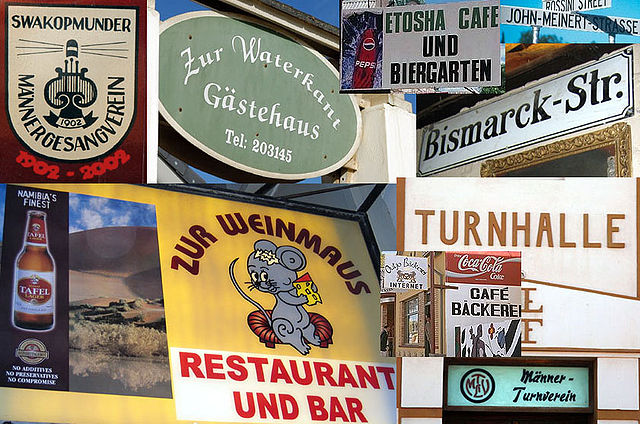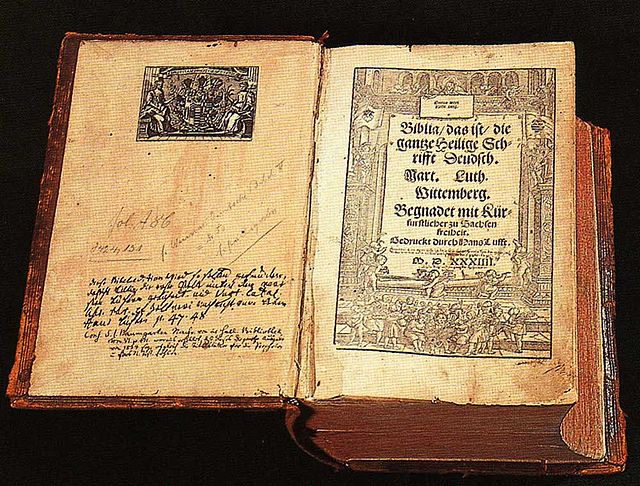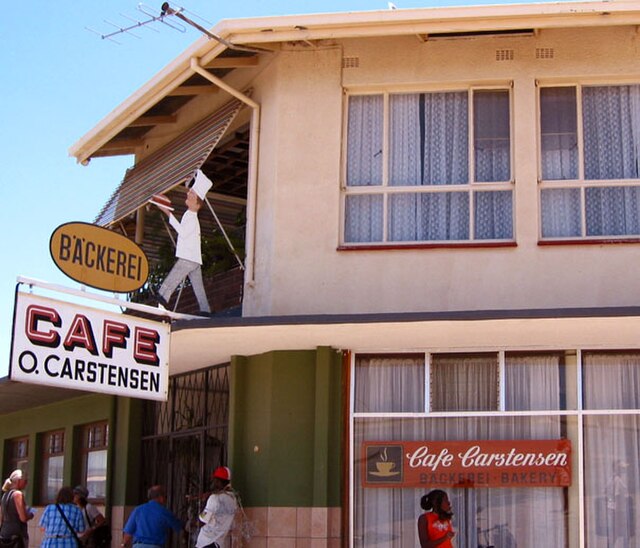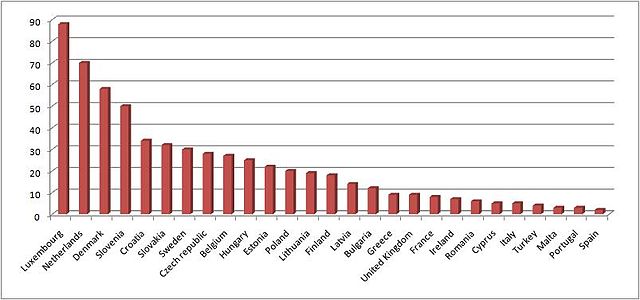The German diaspora consists of German people and their descendants who live outside of Germany. The term is used in particular to refer to the aspects of migration of German speakers from Central Europe to different countries around the world. This definition describes the "German" term as a sociolinguistic group as opposed to the national one since the emigrant groups came from different regions with diverse cultural practices and different varieties of German. For instance, the Alsatians and Hessians were often simply called "Germans" once they set foot in their new homelands.
Ethnic Germans in Hungary and parts of adjacent Austrian territories, census 1890
German minority in Poland, 1925
German cemetery in Campo de Ourique
Examples of German language signage in Namibia
German is a West Germanic language in the Indo-European language family, mainly spoken in Western and Central Europe. It is the most widely spoken and official or co-official language in Germany, Austria, Switzerland, Liechtenstein, and the Italian province of South Tyrol. It is also an official language of Luxembourg and Belgium, as well as a recognized national language in Namibia. There further exist notable German-speaking communities in France (Alsace), the Czech Republic, Poland, Slovakia, Denmark, Romania and Hungary (Sopron).
Modern High German translation of the Christian Bible by the Protestant reformer Martin Luther (1534). The widespread popularity of the Bible translated into High German by Luther helped establish modern Standard German.
Bilingual German-English sign at a bakery in Namibia, where German is a national language
Self-reported knowledge of German as a foreign language in the EU member states (+Turkey and UK), in per cent of the adult population (+15), 2005
Swiss German restaurant sign in Andermatt: "Chuchichäschtli", in Standard German "Küchenkästlein"








